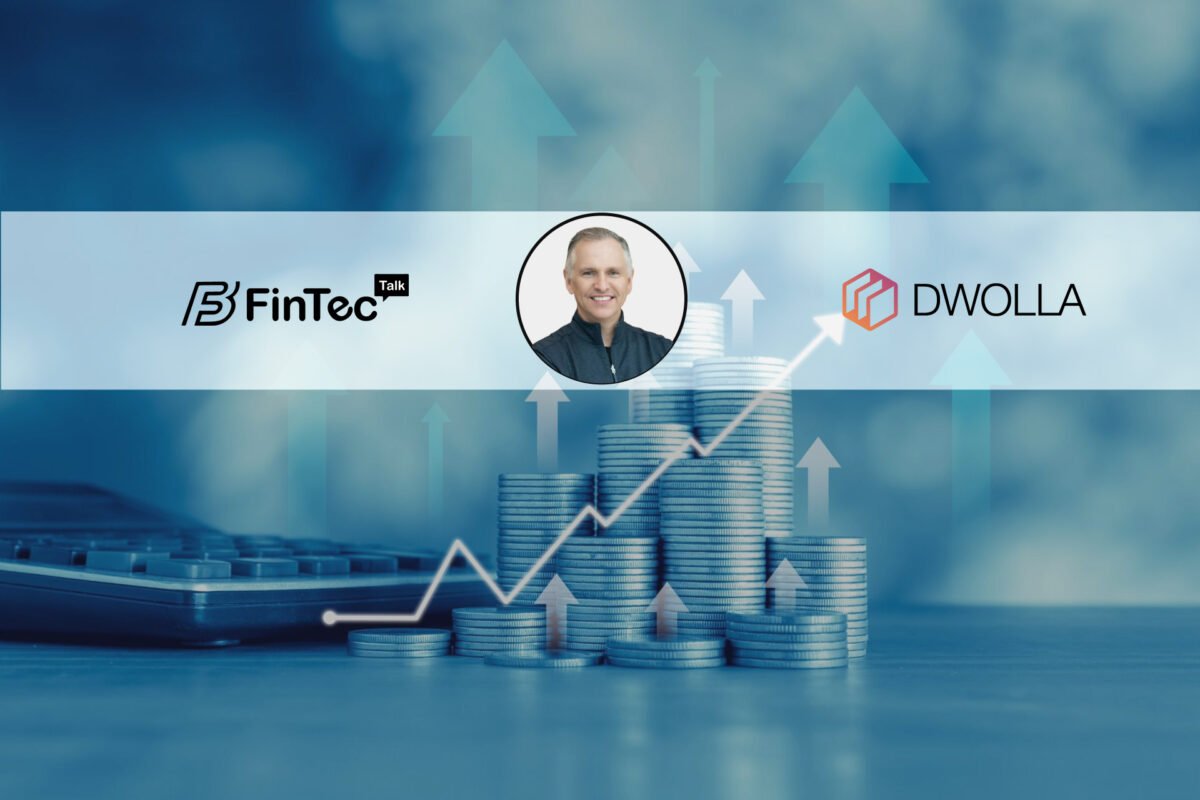1. Tell us about yourself and your role in Wela?
Hi! My name is Matt Reiner and I’m on a mission to positively change the way that financial service providers deliver financial advice to clients.
I’ve been fortunate to be around the wealth management business for over 25 years. Now, some of those were in my younger days, but being able to watch my dad build a successful advisory business (that is now managing multiple billions in family monies) helped to shape the way I think about the business. After graduating from Arizona State University, I came back to Atlanta and joined up with the family business (despite ASU being my alma mater, I’m a huge Dawgs fan, but wasn’t able to get into the Harvard of the South!) I got my CFA designation within three years of graduating and quickly after passed the CERTIFIED FINANCIAL PLANNER exam. I started managing individual family monies and managing our investment committee.
When I joined, we had just launched a newer wealth management business, Wela Strategies. The goal of this business was to provide a personalized and scalable advisory firm for families with less than $250,000 in investable assets. In 2014, I began to take over the reins of this business. In 2015 we began building our own technology solutions for Wela. We eventually created a separate entity for our technology company and built a direct to consumer application that allowed users to track their net worth, open investment accounts and set goals within both a desktop and mobile application. We grew this user base to over 50,000 users and have been able to build our wealth management assets to over $150 million (while not budging and raising our minimum client, that remains at $10,000). As we continued to see the innovation within the space, we continued to see the greater need of helping current financial service providers better integrate technology into their business to stay competitive via efficiencies, but also continuing to enhance the digital client experiences. So, in 2018, we decided to shut down our direct to consumer application and focus all of our technology efforts on building solutions specifically for financial advisors. Our solution, Benjamin™, is a digital assistant for financial advisors. Helping to eliminate tasks within the client / prospect lifecycle so firms can scale more efficiently and grow more profitably. Given our experiences of building two wealth management firms, we were able to architect Benjamin™ to not only be efficient technology but to have the financial service provider’s processes in mind along the entire development cycle.
2. What motivated you to start Wela?
Our industry has (and in my opinion) always will be one where the human relationship is valued and needed. We are an industry focused on helping individuals and their families get the ultimate fulfillment from their earnings and savings and to reach all their desired goals. But our industry has always been one that is slow to adopt new innovations and accept change, given the necessity of a human relationship. The goal of Wela has always been to create solutions that better the industry to allow our industry to progress forward and better serve the current clients and expand the number of families that can benefit from the great services of financial advisors. Each family that is being serviced by a financial advisor has seen their life greatly impacted by technological innovation, but the way they deal with their financial advisor and their financial situation has not evolved with the times. We have seen our lives get more convenient with technologies like Uber and more accessible with texting and more connected with social media and with greater access to information with Google. But as all of this has happened the way we interact with our financial life has stayed pretty status quo. Our goal with Wela was to change that, allow financial advisors to see their daily work life gain greater efficiencies (like their everyday life has) and to allow them to interact and impact more families because of these efficiencies… all the while engaging with clients with a greater experience and allowing more individuals to have access to these services. That is what drives us at Wela everyday… to change the perception of what is possible with technology within this industry and to use technology in the way that doesn’t replace the human, but empowers and elevates them to do more, for more people.
3. Can you share your journey of creating Benjamin a digital assistant?
We started out by creating an app for young families that allowed them to gain a better grasp of their financial life. We allowed them to aggregate their assets and liabilities and then get access to real life human advisors to gain better insight and get a better grip on their plan. We were able to attract over 50,000 users to this free app. We always wanted to create more engagement within the app and so we created our initial chat bot, Benjamin™, for our direct to consumer users to interact with and get answers to their questions and about their financial situation. We saw engagement go up pretty drastically. Along the way as we were building our solution we started to build some technology solutions, separate of the business to consumer application, for our RIA firms. We saw that the efficiencies our technology were creating for our team internally continue to grow. And we began to see an opportunity in the business to business avenue as there were few firms focusing solely on the advisor and their firm (and that had been within the space). We were having difficulty turning our direct to consumer app users into paying clients and thus decided to shut down the direct to consumer business and take the engaging tool of Benjamin™ and merge it with the efficiencies we were creating on the B2B side to build a truly unique digital assistant for financial advisors. And we are the first to present such a technology to the space, giving us a pathway to be unique and create real and impactful change with Benjamin™.
4. How can Benjamin empower todays financial sector?
As our industry continues to grow and our firms continue to add more clients, the amount of tasks that build up in order to properly on-board clients and continusously serve them continues to build. We currently have all the technologies in place to help us to a couple things here and a few direct things there, but we don’t have our technologies integrated together and thus we are left doing multiple tasks to solve one problem or one action. Thus Benjamin™ is a true assistant that can automate and complete multiple tasks at a time without letting them fall through the cracks. By integrating with an advisros current technologies and current workflows, Benjamin™ can actually carry out specific and menial tasks to alert internal teams or reach out and gather information from clients or just alert them with a simple text or email. Benjamin™ empowers financial advisors and their teams by eliminating the menial tasks that keep them from being able to expand their profit margins and grow at a quick clip. Benjamin™ helps from the beginning of the relationship with scheduling and note taking to the on-boarding process to ultimately following up with clients and prospects and proactively alerting teams and advisors of when and who to contact based on unique and customizable rule sets and workflows.
5. How do you distinguish Benjamin from the chatbots?
Benjamin™ leverages similar technology as a chatbot with regards to natural language processing and a conversational interaction… but we took Benjamin™ a step further to have him become a participant of these advisor’s teams. We wanted Benjamin™ to not only be a chat bot to gather information but to be a digital assistant that actually executes. A bot is a great interaction tool that I truly feel has changed the way that people can get information on websites and within apps… but Benjamin™ is actually completely tasks and reporting back to its boss, the team, when things are completed and when he has questions. He is making workflows and processes more efficient as opposed to just being a glorified FAQ or call center. He can get firms and their teams actual hours back in their days, while not letting service drop. This leads to greater revenue opportunities, more referral options and an ability to grow firms in a more profitable way.
6. Can you explain how integrating Benjamin with other platforms makes them more efficient?
Right now the core technology stack for a financial advisor is their calendar/email client, their CRM, their custodian and their portfolio management system. And currently they all work in a silo… so the information that we put into our CRM for a prospect meeting doesn’t help us to make filling out paperwork more efficient. Then when the account is opened we populate our portfolio management system, but we have to go back to our CRM to get information on fees, who the advisor is, what the appropriate allocation is, etc and then fill in the appropriate fields within our portfolio management system. We are putting information into multiple platforms multiple times, causing redundant actions. But we are also having to check multiple systems to see when things are completed like new fundings, accounts opened and what to keep an eye out for based on advisor conversations with clients. By having Benjamin™ sit in the middle of the systems and act as the air traffic controller, information is able to flow more synchrounously between systems and able to reduce the amount of duplicate manual entries into each of the systems. But more importantly, Benjamin™ is able to read information from one system to start a workflow in another and potentially follow through on specific actions based on interacting with another system.
Here is an example of a use case:
i. Let’s take the paperwork on-boarding process as it is right now for example. Right now an advisor sends a client home with a set of paperwork and the advisory team then initiates a workflow to get the paperwork back and submitted to the custodian. A couple days later, a task pops up for a team member to reach out to the client to see how things are going with the paperwork. They play phone tag and exchange multiple emails. The task continues to get pushed out. The papework is returned to the advisor. The team submits the paperwork to the custodian and then sets the next task to check custodian to see if the account has opened. They check and then complete the task in the CRM starting a new task to check about funding. Once the accounts are funded the advisor is assigned a task to trade the account.
ii. Now with Benjamin™, the advisor tells Benjamin™ what paperwork was sent home with the client. Benjamin™ then follows up with the clients until the paperwork is back and alerts the team when it is done. Once submitted to the custodian, Benjamin™ is able to track the account being opened, funded and assign tasks to team members to trade accounts, alerts the team when each action is completed (account opened, funded, etc) and then can even schedule a review meeting with the client to discuss the trades that were made. And this is scalable to many households and for many advisors at once.
7. How does client alerts function help users?
Client alerts create transparency and a common language within a team and with the client. Clients like to know that their adivsors are keeping an eye out for them at all times and the only way they tend to know that is when they hear from their advisor. Thus Benjamin™ is able to constantly articulate this to the clients. But also, Benjamin™ is able to alert all team members so that everyone is always on the same page as to who has opened accounts what new funding has happened, etc. This allows the entire team to be able to service clients, if and when needed. But also Benjamin™ can follow through on follow ups from getting clients to take action on their 401ks or set up a meeting with an estate planner. These create a powerful client experience and allow the advisor to increase their value add that is generated through the human interactions.
8. Can you share with us some of your most successful technology consultation?
The onboarding nudge that Benjamin™ provides has shown to be one of the most successful. We had a client that was transitioning about 550 accounts across 220 or so families. They had to repaper everyone and so they did so with e-signature documentation and they split the households up into different waves. The first wave was 50 households and so they sent the e-signature documents and 7 days later they got 10 sets of documents back from the initial wave. Then we encouraged them to use Benjamin™ and our on-boarding smart set. So, the firm added the other 40 families to the on-boarding smart set and sent out a text to the clients. Within a couple of minutes, they received back 10 sets of documents. The operations team only had to communicate with 5 families in the initial wave and they were able to repaper 90% of the families within 60 days. What this taught us and other firms was the effectiveness of nudging via text messaging. Very few (if any) people that I know have unread text messages, but they tend to have unread emails. The ability for Benjamin™ to consistently reach out to these people (as he did after this initial message for those that still didn’t finish the paperwork) led to less human interaction and a higher action rate by the clients.
9. Why do you think Benjamin has an upper hand than all the other digital assistants?
I don’t know if I would say that Benjamin™ has a leg up on “all” other digital assistants. But what I would say is that Benjamin™ is the only digital assistant that is focused on the financial advisor vertical and I believe that this allows us to be more valuable to this specific industry as opposed to trying to be everything and anything to any industry or professional. I believe that this type of focus (and the industry experience and knowledge that we have and that we built this solution for) gives us a drastic advantage to others that would want to come into the space. Benjamin™ is a homegrown solution based on actual needs and experiences and I think that will ultimately separate us and make us the best (and most effective) digital assistant for financial advisors.
10. What advice would you like to give to the Tech. Start Ups?
Start and iterate. Too often we try to build the perfect idea without ever having any real life feedback on what your idea is. You have to be comfortable releasing something and then iterating it based on feedback and adoption. Too often we try to solve all of the problems that we think are there and then we deliver a solution that nobody wants, but we have already spent a ton of time and all of our money.
Start, get feedback, iterate and then go again. Continue this and always be open to evolving.
11. Which Book are you reading these days?
I’m currently reading the book called Finish by Jon Acuff. It’s a book about how to overcome perfectionism to allow yourself to finish through on things you do. I find myself constantly battling perfectionism and thought the concepts Jon talked about were really intriguing. I think the book has been a great read so far and presents a unique perspective to overcome a common challenge for so many of us.



